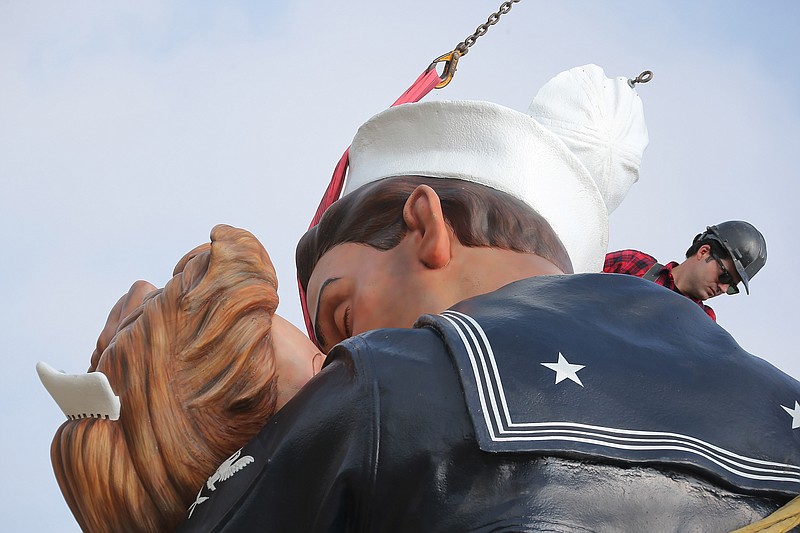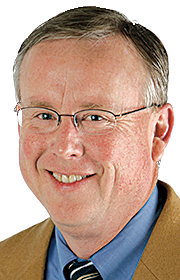What if big data could help aggregate (or maybe even rewrite) history?
What if $1 billion worth of software could crunch all the available facts about World War II, for example, and challenge or build on assumptions historians have made about the war over the last 70 years?
Quietly, college interns around America are feeding vast stacks of information - maps, troop movements, photographs and videos - into a computer program created to be used by U.S. intelligence agencies to track down terrorists.
Really.
By connecting the dots on documented events during the World War II era - 26,500 and counting, so far - scholars hope to apply sophisticated data analysis to the shifting sands of history. But first, somebody has to stack all these facts like cord wood.
This is actually happening, and it's being pushed by a Chattanooga man, Richard Ector, a former Navy officer, nuclear engineer, member of the U.S. diplomatic corps and green-power entrepreneur. Ector and an old government friend, Paul Pope, have started a nonprofit organization called Envisioning History Inc. to spearhead the effort.
Why?
Perhaps the better question, Ector says, is "Why not?"
"Somebody's got to wade in and do it the first time," Ector says. "It [World War II] is the most cataclysmic event in human history. Yet, it was self-inflicted, and it was a hyper-accelerated lab for the evolution of human society."
Ector, a 65-year-old U.S. Naval Academy graduate, said he got the idea to apply big data to World War II history while visiting prospective colleges with his son several years ago. He noticed while touring Princeton University that it offered no course on World War II history. Since much of what's happening today - boundaries in the Middle East, U.S.-Russia relations, etc. - is shaped by the World War II era (defined by the Envisioning History as 1918-1950), it makes sense that the keys to some of today's problems might be hidden in plain sight.
Envisioning History is using software developed by the Silicon Valley data analysis company Planatir to aid the U.S. anti-terrorism effort. The Planatir geo-locating software is based on methods first used by PayPal to track down fraud, and was made available to the nonprofit organization through a philanthropic grant.
To simplify, Ector explains that the Planatir software is like applying the Seven Degrees of Kevin Bacon game to war records - to see, for example, if event A precipitated event B, which then led to event C, in a way that historians might have never have thought about before. To use another metaphor about the software, Ector explains: "It's like walking into a library wearing a pair of magic goggles that lets you see everything on a subject."
Envisioning History is in its formative stages, and Ector is careful not to oversell its potential. But momentum is building to carry on with the experiment. A network of college interns from such places as the University of Tennessee at Chattanooga, Florida State University, the University of North Carolina, Appalachian State University and the University of California at San Diego is entering the data. At this point the interns are merely stacking the data. Any great new revelations about the war will come later when historians engage the new tools.
Meanwhile, the University at Tennessee at Martin this fall will become the first university to add a history course based on the Envisioning History data model. Ector hopes it's one of many to come. The effort is being funded by some veterans groups, but Ector hopes as more universities embrace the concept, deep-pocket funding will follow.
"We know we have substance. We know we have a $1 billion software package. The next step is to pull together the pedagogical techniques to make it worthwhile," Ector says.
Ector's father fought in World War II, and his son is now training to be a military pilot. If Ector can help deepen our understanding of war history, it will honor them both.
Contact Mark Kennedy at mkennedy@timesfree press.com or 423-757-6645. Follow him on Twitter @TFPCOLUMNIST. Subscribe to his Facebook updates at www.facebook.com/mkennedycolumnist.

